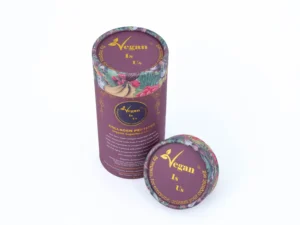Omega-3 fatty acids are essential for maintaining optimal brain health, but many people don’t consume enough of them. While fish oil is a common source of omega-3s, plant-based diets can easily provide these essential fats through vegan sources. Vegan omega-3 comes from algae oil, seeds, and nuts, offering an eco-friendly and ethical alternative to traditional animal-based sources. In this blog, we’ll explore why vegan omega-3 is crucial for brain health, how it works, and how you can easily incorporate it into your diet.
What Are Omega-3 Fatty Acids?
Omega-3 fatty acids are polyunsaturated fats that play a vital role in various bodily functions, including brain health, cell membrane structure, and reducing inflammation. There are three primary types of omega-3s: ALA (alpha-linolenic acid), EPA (eicosapentaenoic acid), and DHA (docosahexaenoic acid). ALA is plant-based, while EPA and DHA are mainly found in marine sources like fish.
- ALA is the omega-3 found in plant-based foods like flaxseeds, chia seeds, and walnuts. The body must convert ALA into EPA and DHA, but this conversion process is inefficient.
- EPA and DHA, which are concentrated in the brain, are crucial for cognitive function, emotional health, and reducing the risk of neurodegenerative diseases. These omega-3s are primarily found in fish and algae.
While the body can convert ALA into EPA and DHA, the conversion process is inefficient. Therefore, it’s important to consume direct sources of EPA and DHA, especially for those following plant-based diets.
Why Do You Need Vegan Omega-3 for Brain Health?
The brain requires high amounts of omega-3s, particularly DHA, to function optimally. Omega-3s support various cognitive processes, such as memory, focus, and problem-solving abilities. Here’s why vegan omega-3s are essential for brain health:
1. Supports Cognitive Function
DHA plays a crucial role in the brain’s structure and function. It makes up a significant portion of the brain’s dry weight and helps form neural connections, necessary for memory and learning. Research shows that people with higher DHA levels tend to have better cognitive function and a lower risk of age-related cognitive decline.
2. Reduces Inflammation
Chronic brain inflammation has been linked to neurological disorders like depression, anxiety, and Alzheimer’s disease. Omega-3s, particularly EPA, have anti-inflammatory properties that help reduce brain inflammation. As a result, vegan omega-3s offer excellent support for mental health.
3. Protects Against Alzheimer’s Disease and Dementia
Studies suggest that adequate omega-3 intake can help protect the brain from Alzheimer’s disease and dementia. DHA preserves the structural integrity of neurons and reduces the build-up of beta-amyloid plaques, which are linked to Alzheimer’s. Vegan omega-3s, particularly from algae oil, offer a sustainable and ethical alternative for maintaining cognitive health.
4. Improves Mood and Mental Health
Omega-3s, especially EPA, have been shown to reduce symptoms of depression and anxiety. They regulate serotonin and dopamine, neurotransmitters that influence mood, stress, and emotional stability. Including vegan omega-3s in your diet is an effective way to support emotional well-being.
5. Enhances Brain Plasticity
Brain plasticity refers to the brain’s ability to adapt and form new neural connections. DHA enhances brain plasticity, which is essential for learning, memory retention, and recovery from brain injuries.
Vegan Sources of Omega-3
A common challenge for those following plant-based diets is getting enough DHA and EPA, as these forms are primarily found in fish. Fortunately, there are excellent vegan sources of omega-3 fatty acids.
1. Algae Oil
Algae oil is the best plant-based source of both EPA and DHA. It’s the original source of omega-3s for fish, making it a direct and clean source for vegans. Algae oil supplements provide an easy way to ensure you’re getting enough EPA and DHA for brain health.
2. Chia Seeds
Chia seeds are packed with ALA, which the body can convert into EPA and DHA. These tiny seeds are also rich in fiber and antioxidants, making them a nutritious addition to smoothies, oatmeal, or salads.
3. Flaxseeds
Flaxseeds are one of the best plant-based sources of ALA omega-3s. Ground flaxseeds are easier for the body to digest and can be added to smoothies, baking, or sprinkled over cereal.
4. Walnuts
Walnuts are another excellent source of ALA omega-3s. You can snack on a handful of walnuts or add them to dishes like salads or oatmeal to boost your omega-3 intake.
5. Hemp Seeds
Hemp seeds are not only rich in protein but also provide a healthy dose of omega-3s in the form of ALA. You can easily add them to smoothies, salads, or use them as a topping for yogurt.
How to Incorporate Vegan Omega-3 into Your Diet
Incorporating vegan omega-3s into your diet doesn’t have to be difficult. Here are some easy tips:
- Add flaxseeds and chia seeds to smoothies. A tablespoon of ground flaxseeds or chia seeds is an easy way to boost your omega-3 intake.
- Snack on walnuts. Keep a bag of walnuts handy for a brain-boosting snack.
- Take algae oil supplements. Algae oil is a direct source of EPA and DHA. Taking a daily supplement ensures you’re getting enough omega-3s for brain health.
- Top salads with hemp seeds. Hemp seeds add a delicious crunch to salads and bowls, making them an excellent addition to your diet.
Sustainability and Ethical Considerations of Vegan Omega-3
Choosing vegan omega-3s benefits both your brain health and the planet. Overfishing and the depletion of marine ecosystems are major environmental concerns. By opting for algae oil or other plant-based omega-3 sources, you’re supporting sustainable practices that help protect marine life. Algae oil is grown in controlled environments, so it doesn’t contribute to ocean pollution or depletion.
FAQ Section
1. What is the difference between ALA, EPA, and DHA?
- ALA is a plant-based omega-3 that the body must convert into EPA and DHA. EPA and DHA are the forms of omega-3 most beneficial for brain health, and they are mainly found in marine sources like fish and algae.
2. Can I get enough omega-3 from a plant-based diet?
- Yes, you can! Vegan omega-3 sources like algae oil, chia seeds, flaxseeds, and walnuts provide ample omega-3s for brain health. For EPA and DHA, algae oil supplements are the most direct and effective plant-based option.
3. How much vegan omega-3 should I consume daily?
- Aim for at least 1-2 tablespoons of ALA-rich seeds (like flaxseeds or chia seeds) or consider taking algae oil supplements as directed by the manufacturer or a healthcare provider.
4. Is algae oil safe for vegans?
- Yes, algae oil is a clean, sustainable, and effective source of both EPA and DHA omega-3s, making it an ideal supplement for vegans.
5. Does vegan omega-3 help with mood disorders?
- Yes, omega-3s, particularly EPA, have been shown to reduce symptoms of depression and anxiety. They help regulate brain chemicals that affect mood and emotional stability.
By including vegan omega-3s in your diet, you’re taking a crucial step toward better brain health. Whether through plant-based foods or supplements, these essential fats are key for cognitive function, emotional well-being, and overall mental health. For a convenient source of organic superfoods, visit Veganisus for premium plant-based superfood powders to support your brain health and overall wellness.







